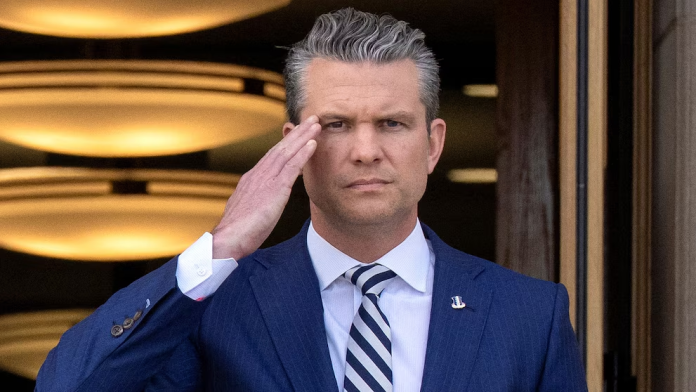US Defence Secretary Pete Hegseth reportedly shared classified details of a March military strike targeting Yemen’s Houthi rebels in a second private Signal chat involving his wife, brother, and personal lawyer, according to Reuters.
The revelation, disclosed to Reuters on Sunday, intensifies concerns over Hegseth’s handling of sensitive information amid an ongoing Pentagon leak probe that has already led to senior officials being ousted.
The newly disclosed chat, created during Hegseth’s confirmation process to discuss administrative matters, included roughly a dozen participants and contained operational timelines for the strikes, a source familiar with the matter said.
This follows an earlier incident in which The Atlantic inadvertently obtained similar details after its editor-in-chief, Jeffrey Goldberg, was mistakenly added to a separate Signal group involving former Trump administration officials.
Hegseth’s wife, Jennifer–a former Fox News producer–has attended high-level meetings with foreign defence counterparts, including a March session with Britain’s defence secretary where she was photographed seated behind her husband. His brother serves as a Department of Homeland Security liaison to the Pentagon, raising further questions about potential conflicts of interest.
Democratic lawmakers demanded Hegseth’s resignation, with Senate Minority Leader Chuck Schumer declaring he “put lives at risk” and must be fired.
We keep learning how Pete Hegseth put lives at risk. But Trump is still too weak to fire him. Pete Hegseth must be fired.
Senator Tammy Duckworth, an Iraq War veteran, echoed calls for Hegseth to step down “in disgrace.” The White House dismissed the allegations as “misrepresentations” by disgruntled ex-staffers, while Pentagon spokesperson Sean Parnell accused the media of targeting Trump loyalists.
The fallout comes days after Dan Caldwell, a key Hegseth adviser, was escorted from the Pentagon as part of the leak investigation. Two other officials, Darin Selnick and Colin Carroll, were placed on administrative leave and later dismissed. Caldwell denied wrongdoing, claiming unnamed officials had “slandered” his character.
The controversy underscores deepening turmoil within the Pentagon as Hegseth grapples with dual crises: a credibility gap over security protocols and a widening internal probe.
